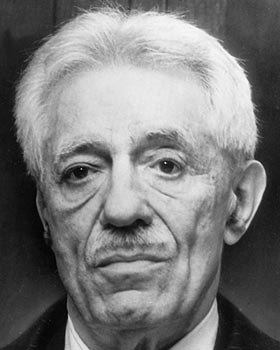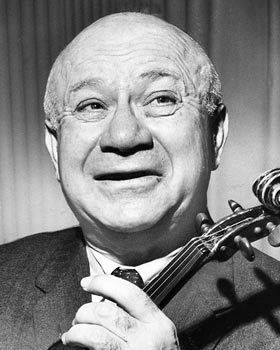Fritz Kreisler
Fritz Kreisler was one of the greatest violinists of the 20th century.
"I live in memories," he said once to an interviewer, complaining of the changing requirements placed upon an artist by a society whose values turned commercial. Bitterness was a companion in his final years.
A native of Austria, Kreisler became an American citizen in 1943. A child prodigy, Kreisler boasted that he never practiced.
"I mean it when I say that. In my mind is the concept. My arm and my fingers are like private soldiers, who execute commands from above."
Kreisler was born Feb. 2, 1875, the son of a physician. He first toured the United States in his American debut in 1888-89 — earning $37 a week. In the years ahead, Kreisler's violin was to bring him $3,000 an appearance.
During a concert tour of America in 1901, Kreisler met Harriet Lies of New York. They married the following year and she devoted her life to his career. They had no children.
Twice in his 65 years of greatness, death threatened to rob the world of his magnificent gifts. In the first World War, he was gravely wounded while fighting on the front with the Austrian army.
"A whole troop of Russian Cossacks ran over me," he recalled.
Again, in 1941, he was run down by a truck. In his own words: "My accident took my sight and my hearing. I could not move and I was bandaged and useless. But my mind was still there waiting."
Kreisler's amazing versatility in time and form are attested to by more than 200 published works, many of them under noms de plume. These included concertos, chamber music, solos for violin and piano and operettas. Among them were "Liebesfreud," "Caprice Viennois," "Schoen Rosmarin," the music for "Apple Blossoms," and the operetta "Cissy."
Related stars
|
|



One thought about Fritz Kreisler
Share a thought about Fritz Kreisler